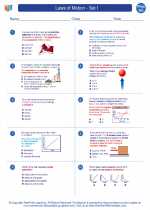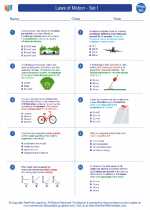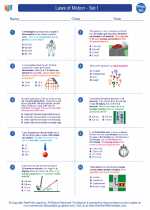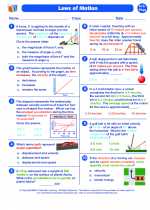Cellular Function: An Overview
Cellular function refers to the processes and activities that take place within a cell, allowing it to carry out essential functions necessary for life. These functions include processes such as metabolism, growth, response to stimuli, and reproduction.
Key Concepts
- Metabolism: This refers to the chemical reactions that occur within a cell to convert food into energy and the building blocks needed for growth and repair.
- Cellular Respiration: The process by which cells generate energy in the form of ATP (adenosine triphosphate) through the breakdown of glucose in the presence of oxygen.
- Photosynthesis: The process by which plants and some microorganisms convert light energy into chemical energy in the form of glucose.
- Cellular Communication: Cells communicate with each other through chemical signals to coordinate activities and respond to changes in the environment.
- Cellular Transport: The movement of molecules and ions into and out of the cell, crucial for maintaining the cell's internal environment.
- DNA Replication and Protein Synthesis: The processes by which genetic information is copied and used to synthesize proteins, essential for cell growth and repair.
- Cell Cycle and Cell Division: The series of events that take place in a cell leading to its division and replication.
Study Guide
To understand cellular function, it's important to grasp the following concepts:
- What is metabolism and how does it contribute to cellular function?
- Describe the processes involved in cellular respiration and photosynthesis.
- Explain how cells communicate with each other and why this is essential for their function.
- Understand the mechanisms of cellular transport and its significance in maintaining cellular function.
- Discuss the processes of DNA replication and protein synthesis and their role in cellular function.
- Examine the cell cycle and the significance of cell division in cellular function.
By mastering these concepts, you will develop a solid understanding of cellular function and its importance in sustaining life.
.◂Physics Worksheets and Study Guides High School. Laws of Motion - Set I
Worksheet/Answer key Laws of Motion - Set I
Laws of Motion - Set I  Worksheet/Answer key
Worksheet/Answer key Laws of Motion - Set I
Laws of Motion - Set I  Worksheet/Answer key
Worksheet/Answer key Laws of Motion - Set I
Laws of Motion - Set I  Worksheet/Answer key
Worksheet/Answer key Laws of Motion - Set I
Laws of Motion - Set I 

 Worksheet/Answer key
Worksheet/Answer key
 Worksheet/Answer key
Worksheet/Answer key
 Worksheet/Answer key
Worksheet/Answer key

The resources above cover the following skills:
PHYSICAL SCIENCE (NGSS)
Energy
Students who demonstrate understanding can:
Develop and use models to illustrate that energy at the macroscopic scale can be accounted for as either motions of particles or energy stored in fields.